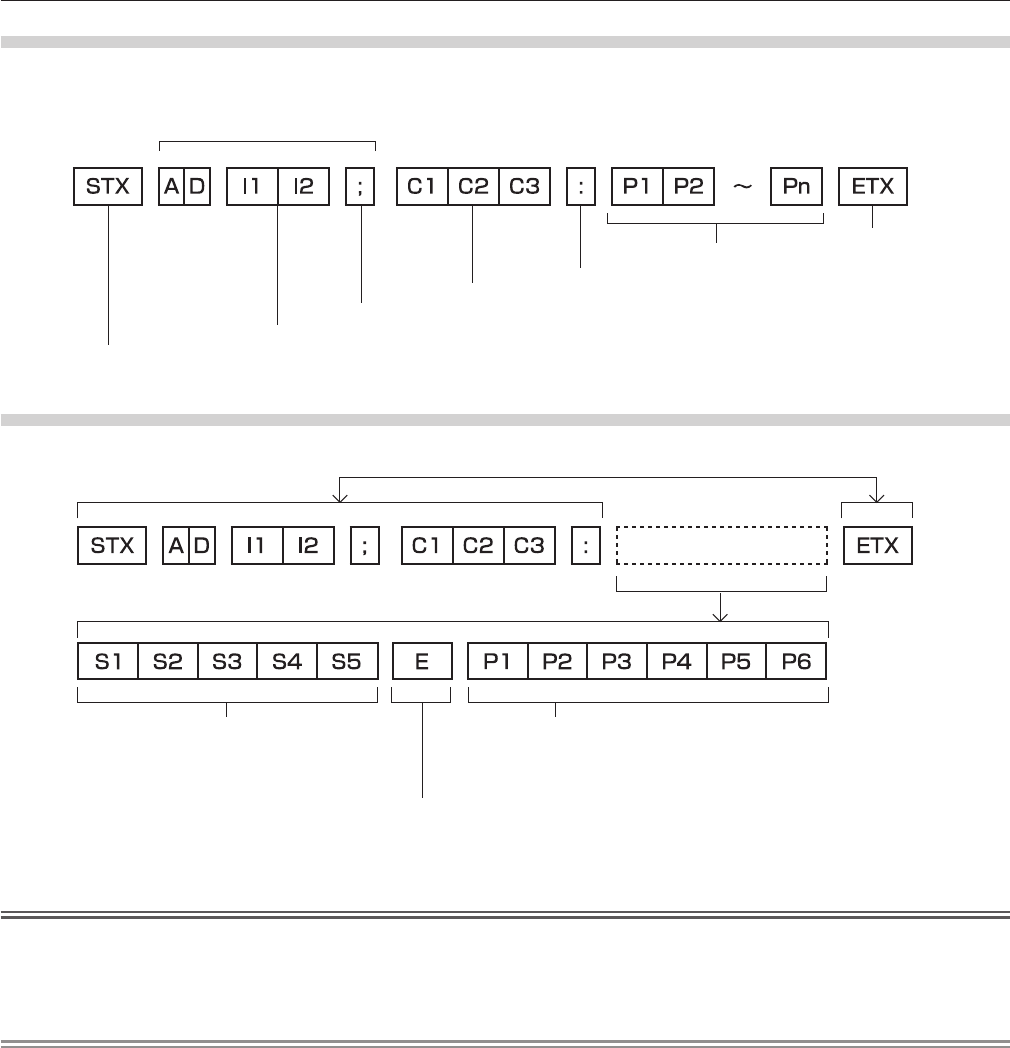
Chapter 6 Appendix — Technical information
ENGLISH - 141
Basic format
Transmission from the computer starts with STX, then the ID, command, parameter, and ETX are sent in this order. Add parameters according
to the details of control.
(2 bytes)
2 ID characters (2 bytes)
Semi-colon (1 byte)
Colon (1 byte)
3 command characters (3 bytes)
Parameter (undefined length)
Start (1 byte)
ZZ, 01 to 64
ID designate
End (1 byte)
Basic format (has subcommands)
Parameter (6 bytes)
*1
Symbol “+” or “-” (1 byte) and setting or adjustment value (5
bytes)
Operation (1 byte)
*1
“=” (Set the value specified using parameter)
Sub command (5 bytes)
Same as the basic format
*1 When transmitting a command which does not need a parameter, an operation (E) and parameter are not necessary.
Attention
f If a command is transmitted after the lamp starts illuminating, there may be a delay in response or the command may not be executed. Try
sending or receiving any command after 60 seconds.
f When transmitting multiple commands, be sure to wait until 0.5 seconds has elapsed after receiving the response from the projector before
sending the next command. When transmitting a command which does not need a parameter, a colon (:) is not necessary.
Note
f If a command cannot be executed, the “ER401” response is sent from the projector to the computer.
f If an invalid parameter is sent, the “ER402” response is sent from the projector to the computer.
f ID transmission in RS-232C supports ZZ (ALL) and 01 to 64.
f If a command is sent with a specied ID, a response will be sent to the computer only in the following cases.
g It matches the projector ID
g When [PROJECTOR ID] (x page 86) on the projector is [ALL]
f STX and ETX are character codes. STX shown in hexadecimal is 02, and ETX shown in hexadecimal is 03.


















